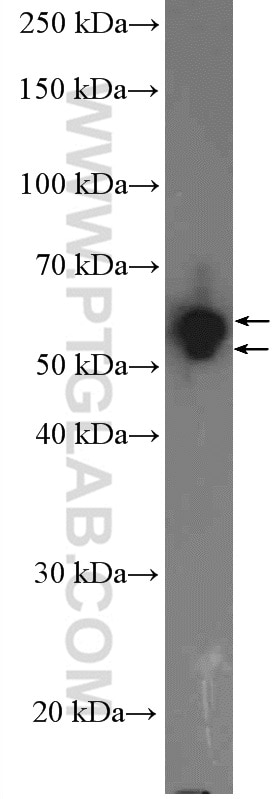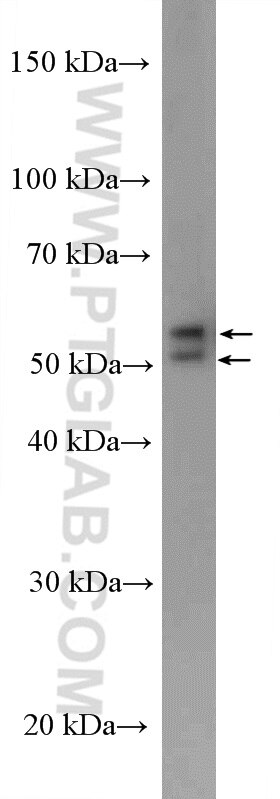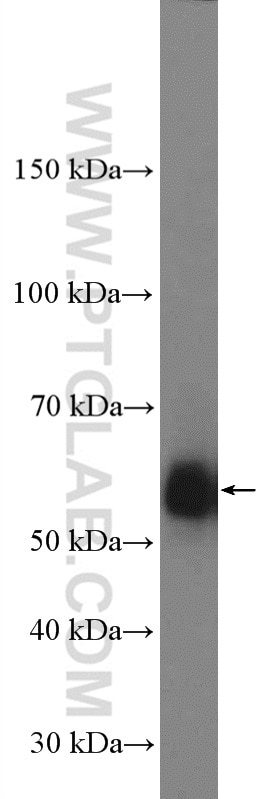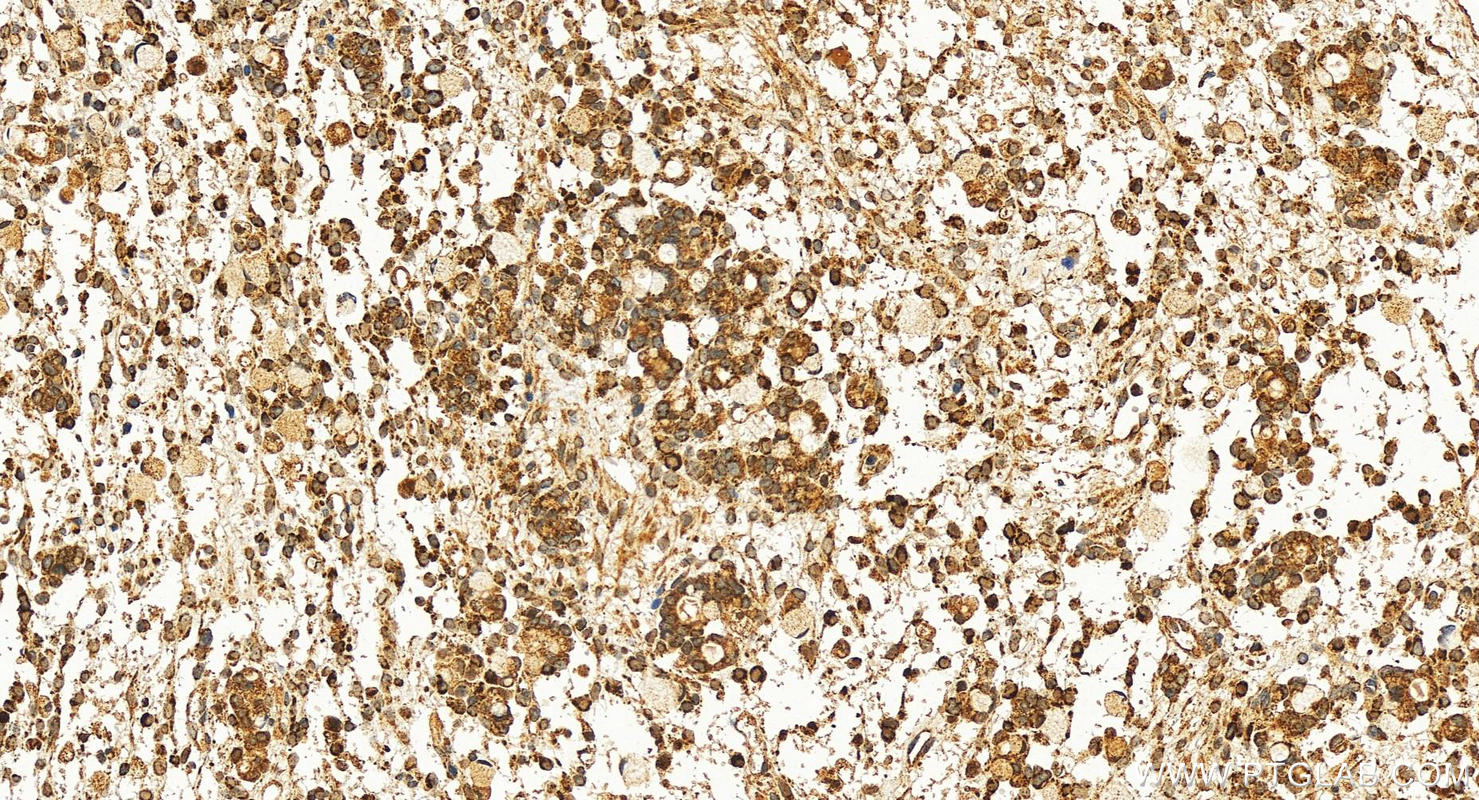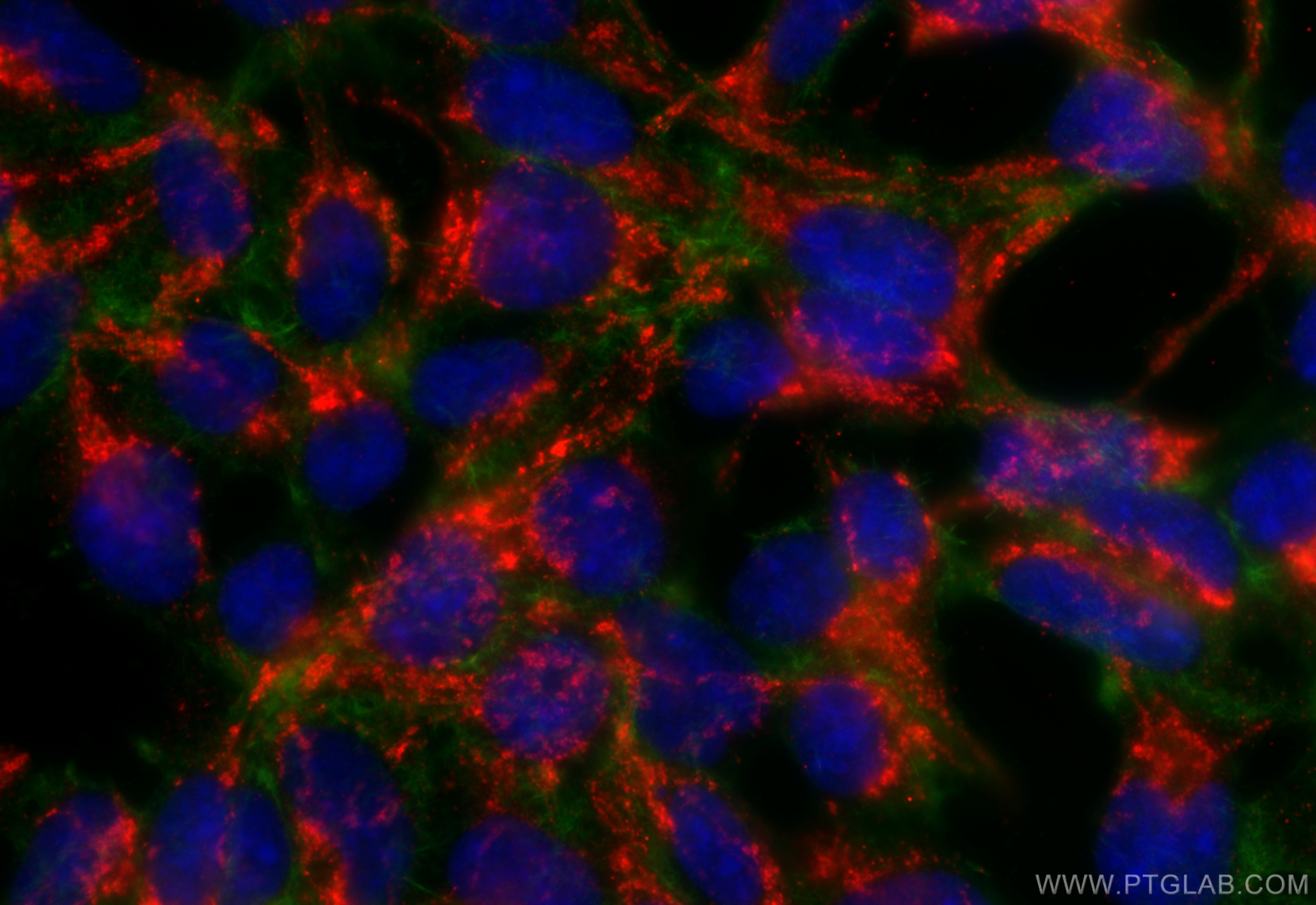PCTAIRE3 Polyklonaler Antikörper
PCTAIRE3 Polyklonal Antikörper für WB, IHC, IF/ICC, ELISA
Wirt / Isotyp
Kaninchen / IgG
Getestete Reaktivität
human, Maus
Anwendung
WB, IHC, IF/ICC, ELISA
Konjugation
Unkonjugiert
Kat-Nr. : 12207-1-AP
Synonyme
Geprüfte Anwendungen
| Erfolgreiche Detektion in WB | HEK-293-Zellen, Maushirngewebe |
| Erfolgreiche Detektion in IHC | human ovary cancer tissue Hinweis: Antigendemaskierung mit TE-Puffer pH 9,0 empfohlen. (*) Wahlweise kann die Antigendemaskierung auch mit Citratpuffer pH 6,0 erfolgen. |
| Erfolgreiche Detektion in IF/ICC | HEK-293-Zellen |
Empfohlene Verdünnung
| Anwendung | Verdünnung |
|---|---|
| Western Blot (WB) | WB : 1:500-1:2000 |
| Immunhistochemie (IHC) | IHC : 1:50-1:500 |
| Immunfluoreszenz (IF)/ICC | IF/ICC : 1:200-1:800 |
| It is recommended that this reagent should be titrated in each testing system to obtain optimal results. | |
| Sample-dependent, check data in validation data gallery | |
Produktinformation
12207-1-AP bindet in WB, IHC, IF/ICC, ELISA PCTAIRE3 und zeigt Reaktivität mit human, Maus
| Getestete Reaktivität | human, Maus |
| Wirt / Isotyp | Kaninchen / IgG |
| Klonalität | Polyklonal |
| Typ | Antikörper |
| Immunogen | PCTAIRE3 fusion protein Ag2851 |
| Vollständiger Name | PCTAIRE protein kinase 3 |
| Berechnetes Molekulargewicht | 472 aa, 54 kDa |
| Beobachtetes Molekulargewicht | 54 kDa, 58 kDa |
| GenBank-Zugangsnummer | BC011526 |
| Gene symbol | PCTAIRE3 |
| Gene ID (NCBI) | 5129 |
| Konjugation | Unkonjugiert |
| Form | Liquid |
| Reinigungsmethode | Antigen-Affinitätsreinigung |
| Lagerungspuffer | PBS with 0.02% sodium azide and 50% glycerol |
| Lagerungsbedingungen | Bei -20°C lagern. Nach dem Versand ein Jahr lang stabil Aliquotieren ist bei -20oC Lagerung nicht notwendig. 20ul Größen enthalten 0,1% BSA. |
Hintergrundinformationen
PCTAIRE3 (PCTAIRE-motif protein kinase 3), also named CDK18 or PCTK3, is a member of PCTAIRE subfamily. The PCTAIRE kinase (PCTK) subfamily of CDKs includes three members, PCTK1/CDK16, PCTK2/CDK17, and PCTK3/CDK18, which contain the PCTAIRE sequence instead of the PSTAIRE sequence (PMID: 24831015). PCTK3 has three isoforms with the molecular mass of 54-58kD.
Protokolle
| PRODUKTSPEZIFISCHE PROTOKOLLE | |
|---|---|
| WB protocol for PCTAIRE3 antibody 12207-1-AP | Protokoll herunterladen |
| IHC protocol for PCTAIRE3 antibody 12207-1-AP | Protokoll herunterladenl |
| IF protocol for PCTAIRE3 antibody 12207-1-AP | Protokoll herunterladen |
| STANDARD-PROTOKOLLE | |
|---|---|
| Klicken Sie hier, um unsere Standardprotokolle anzuzeigen |
